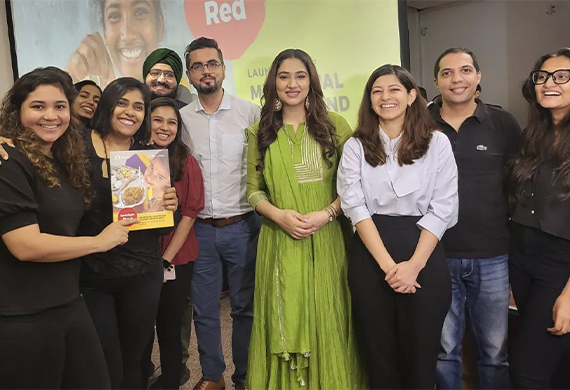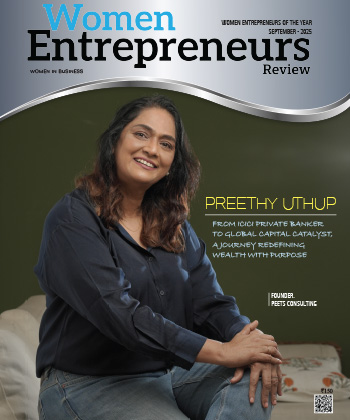
Whisper & UNESCO Launch 'Spotlight Red' Campaign to Address Menstrual Health & Hygiene in India
By: WE Staff | Monday, 3 July 2023
In a groundbreaking initiative to combat the lack of period education and products that result in 1 out of 5 girls dropping out of school in India, Whisper and UNESCO India have come together to launch the "Spotlight Red" campaign. With a mission to empower and educate girls, particularly those attending school, the campaign aims to break the barriers surrounding menstruation and promote menstrual health and hygiene management.
For over three decades, Whisper has been at the forefront of menstrual education, distributing free pads, and dispelling myths and taboos associated with periods. Recognizing the urgent need for comprehensive menstrual education and hygiene management, Whisper partnered with UNESCO India to develop five teaching-learning modules. These modules serve as invaluable tools for educators, young adults, and persons with disabilities, and focus on gender and nutrition, enabling them to drive menstrual health and hygiene awareness.
The purpose of these modules is to delegate adolescents, including girls with disabilities, by furnishing them with credentials for period and puberty education. By equipping them with essential knowledge, the modules aim to create a supportive environment that encourages girls to continue their education and thrive. They also foster awareness about the societal impact of menstruation, enhancing understanding and skills related to menstrual management.
As part of the broader #KeepGirlsInSchool campaign, the "Spotlight Red" initiative undertook a National Survey and Gap Analysis to shed light on the challenges faced by adolescent girls. The report's findings revealed a shocking reality: in poor urban areas, 50% of adolescent girls aged 15 to 19 lack access to hygienic methods for managing their periods. This alarming statistic underscores the critical need for action and intervention.
At the campaign's launch event, distinguished guests gathered to lend their support. Dr Sujata Bhan, Head of the Department of Special Education at SNDT Women's University, Mumbai, served as the Chief Guest, while Ms Disha Parmar, a renowned Indian actress, attended as the Guest of Honour. Dr Huma Masood, a Senior Gender Specialist at UNESCO India, and Ms Kruti Desai, Communication Head at Whisper P & G, were also present, highlighting the significance of the campaign.
Actress Disha Parmar shared her perspective on the importance of open dialogue about periods, emphasizing that menstruation should not be seen as a taboo or a source of shame. She passionately expressed her desire for a future where menstrual health and hygiene receive the attention they deserve, ensuring that her child grows up in an environment free from menstrual stigma.
Dr Huma Masood underscored the comprehensive approach of the "Spotlight Red" initiative, highlighting its focus on addressing the urgent need for menstrual health and hygiene management in schools. With an alarming number of 23 million girls dropping out annually due to insufficient facilities and information, the campaign combines education and advocacy to empower learners and menstruators.
During the campaign launch event, UNESCO showcased a comprehensive survey report and accompanying short films that shed light on different dimensions of menstrual health and hygiene management. These films aimed to portray diverse experiences and perspectives related to this vital subject matter, representing various regions across seven states in India. To further break down barriers and eliminate the stigma surrounding periods, an empowering "Pride of Period Anthem" was also presented, inspiring a more promising and inclusive future for all individuals who menstruate.
Through the "Spotlight Red" campaign, Whisper and UNESCO India are taking significant strides to tackle the challenges faced by girls in India regarding menstrual health and hygiene. By providing essential education, resources, and support, the campaign aims to empower girls, ensure their access to education, and foster a society where menstruation is openly discussed, understood, and celebrated.






